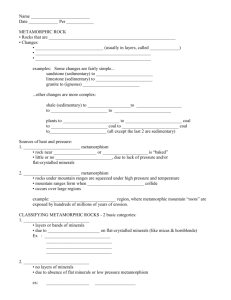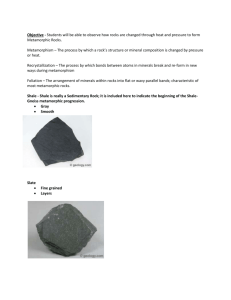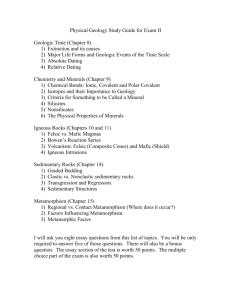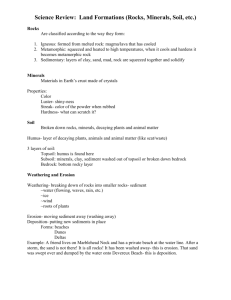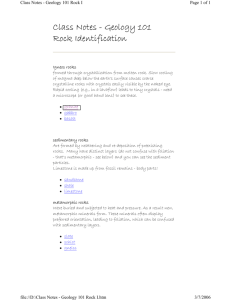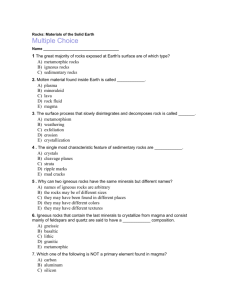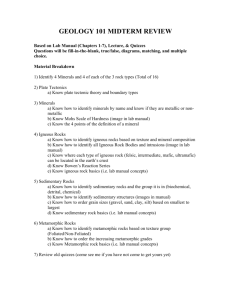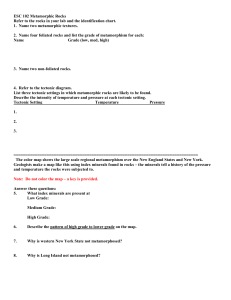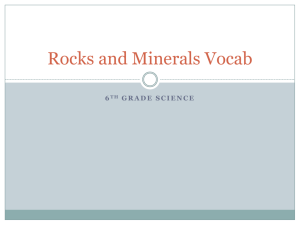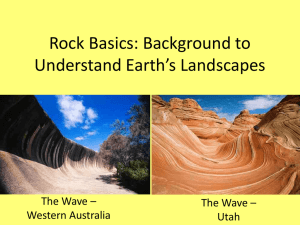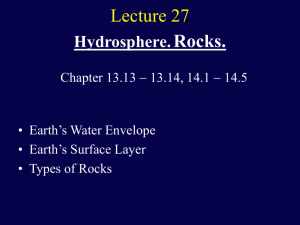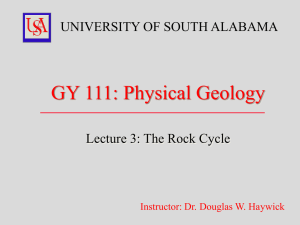GE 2000 Review Sheet- Exam 1 Minerals
advertisement
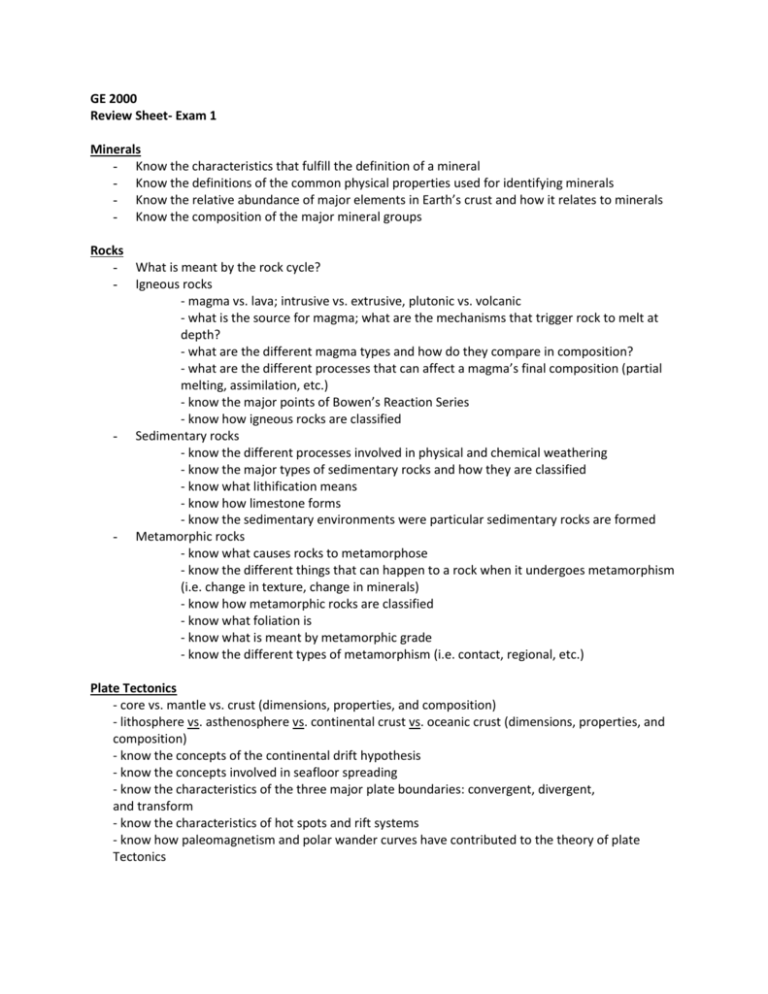
GE 2000 Review Sheet- Exam 1 Minerals - Know the characteristics that fulfill the definition of a mineral - Know the definitions of the common physical properties used for identifying minerals - Know the relative abundance of major elements in Earth’s crust and how it relates to minerals - Know the composition of the major mineral groups Rocks - What is meant by the rock cycle? - Igneous rocks - magma vs. lava; intrusive vs. extrusive, plutonic vs. volcanic - what is the source for magma; what are the mechanisms that trigger rock to melt at depth? - what are the different magma types and how do they compare in composition? - what are the different processes that can affect a magma’s final composition (partial melting, assimilation, etc.) - know the major points of Bowen’s Reaction Series - know how igneous rocks are classified - Sedimentary rocks - know the different processes involved in physical and chemical weathering - know the major types of sedimentary rocks and how they are classified - know what lithification means - know how limestone forms - know the sedimentary environments were particular sedimentary rocks are formed - Metamorphic rocks - know what causes rocks to metamorphose - know the different things that can happen to a rock when it undergoes metamorphism (i.e. change in texture, change in minerals) - know how metamorphic rocks are classified - know what foliation is - know what is meant by metamorphic grade - know the different types of metamorphism (i.e. contact, regional, etc.) Plate Tectonics - core vs. mantle vs. crust (dimensions, properties, and composition) - lithosphere vs. asthenosphere vs. continental crust vs. oceanic crust (dimensions, properties, and composition) - know the concepts of the continental drift hypothesis - know the concepts involved in seafloor spreading - know the characteristics of the three major plate boundaries: convergent, divergent, and transform - know the characteristics of hot spots and rift systems - know how paleomagnetism and polar wander curves have contributed to the theory of plate Tectonics
